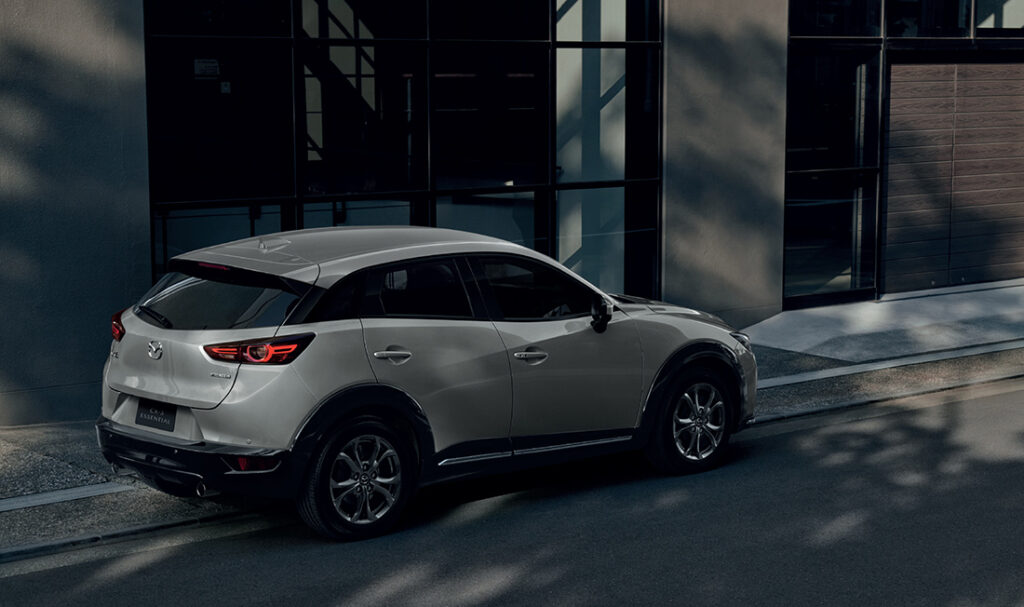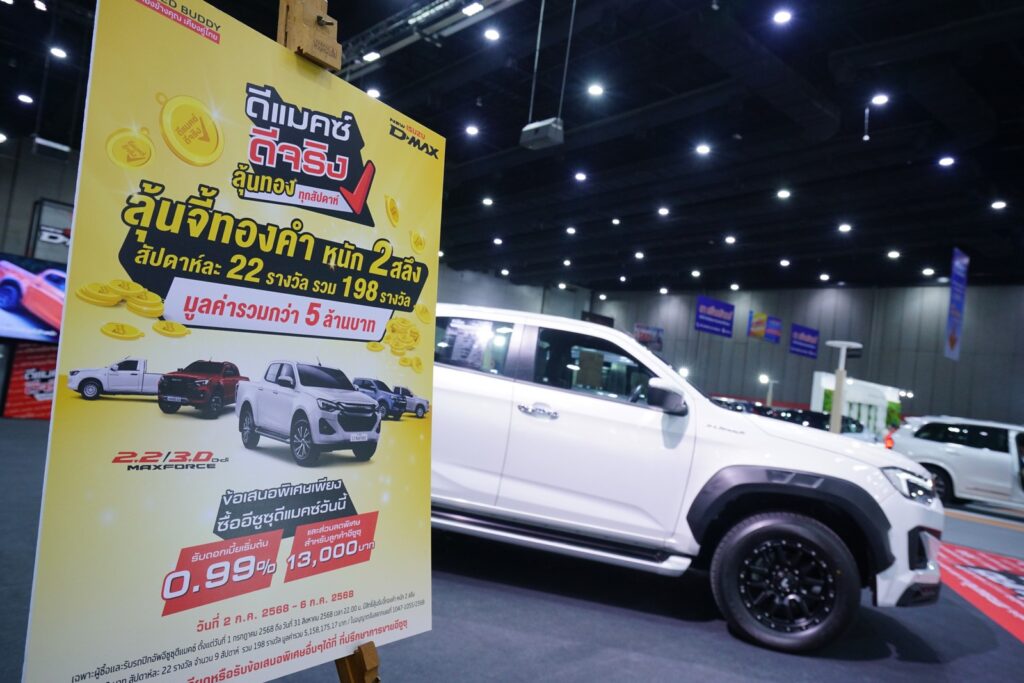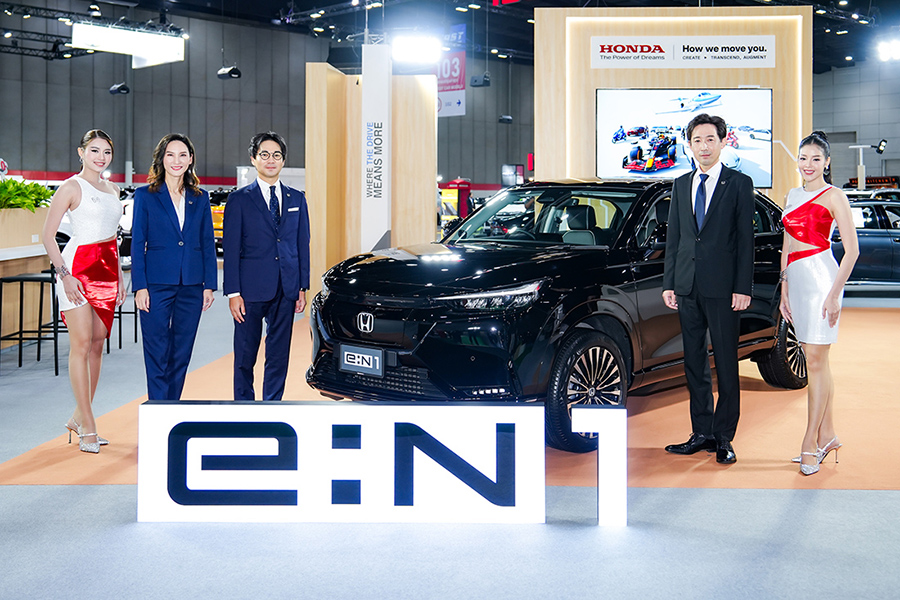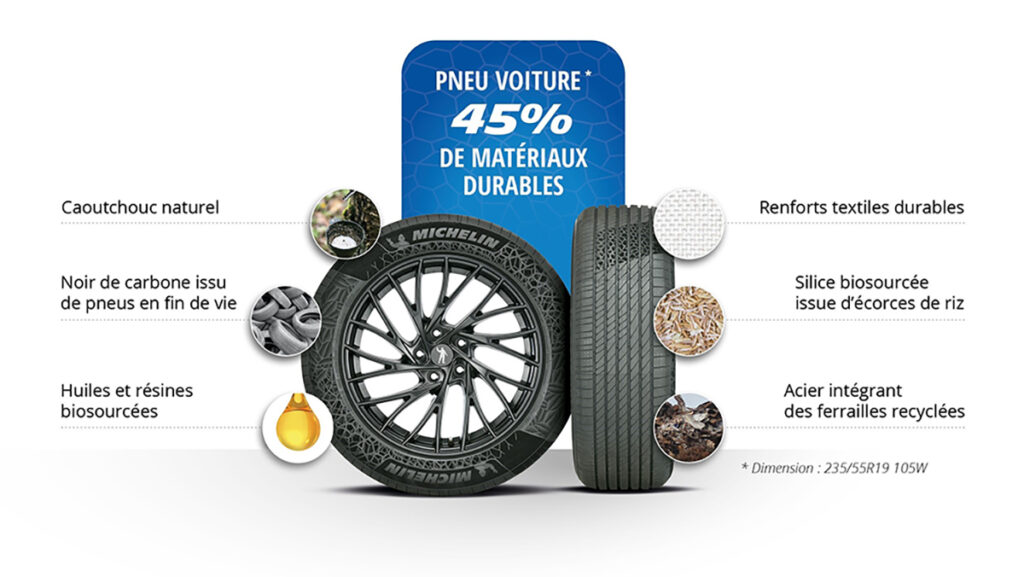
- ยางมิชลินสำหรับรถยนต์นั่งซึ่งผลิตจากวัสดุยั่งยืนในสัดส่วนสูงถึง 45% และผ่านการรับรองสำหรับใช้งานบนท้องถนนทั่วไป ได้รับรางวัลประเภท “ระบบช่วงล่าง ตัวถังรถ และอุปกรณ์ตกแต่งภายนอก” (Chassis, Car Body & Exterior)
- โดยการใช้วัสดุที่ยั่งยืนเป็นกลยุทธ์ที่โดดเด่น ทั้งในด้านมาตรฐานระดับสูง, ขอบเขตการดำเนินงาน, มิติของการผสานพันธมิตร และวิสัยทัศน์ในภาพรวม
- รางวัลนี้มอบให้เพื่อยกย่องความมุ่งมั่นของมิชลินในการที่จะผลิตยางล้อจากวัสดุยั่งยืน 100% ภายในปี 2593 โดยมีเป้าหมายระยะกลาง (Interim Target) ที่จะใช้วัสดุยั่งยืนเพิ่มขึ้นในการผลิตยางล้ออีก 40% ภายในปี 2573
เร็ว ๆ นี้ ยางมิชลินสำหรับรถยนต์นั่งซึ่งผลิตจากวัสดุยั่งยืนในสัดส่วนสูงถึง 45% และผ่านการรับรองสำหรับใช้งานบนท้องถนนทั่วไป ได้รับรางวัลนวัตกรรมยานยนต์ AutomotiveINNOVATIONS Award ประจำปี 2566 ประเภท “ระบบช่วงล่าง ตัวถังรถ และอุปกรณ์ตกแต่งภายนอก” (Chassis, Car Body & Exterior) ณ นครแฟรงก์เฟิร์ต ประเทศเยอรมนี รางวัลดังกล่าวมอบให้โดยบริษัท ไพรซ์วอเตอร์เฮาส์คูเปอร์ส (PricewaterhouseCoopers: PwC) และศูนย์บริหารจัดการธุรกิจยานยนต์ (Center of Automotive Management: CAM) ซึ่งได้ทำการเฟ้นหานวัตกรรมที่โดดเด่นสำคัญในอุตสาหกรรมยานยนต์ร่วมกับผู้ผลิตและซัพพลายเออร์มาตลอดระยะเวลากว่าหนึ่งทศวรรษ โดยคณะกรรมการประกอบด้วยผู้มากประสบการณ์ทั้งในอุตสาหกรรมยานยนต์ แวดวงวิทยาศาสตร์และการให้คำปรึกษา ตลอดจนสื่อเฉพาะทาง (Specialized Media)
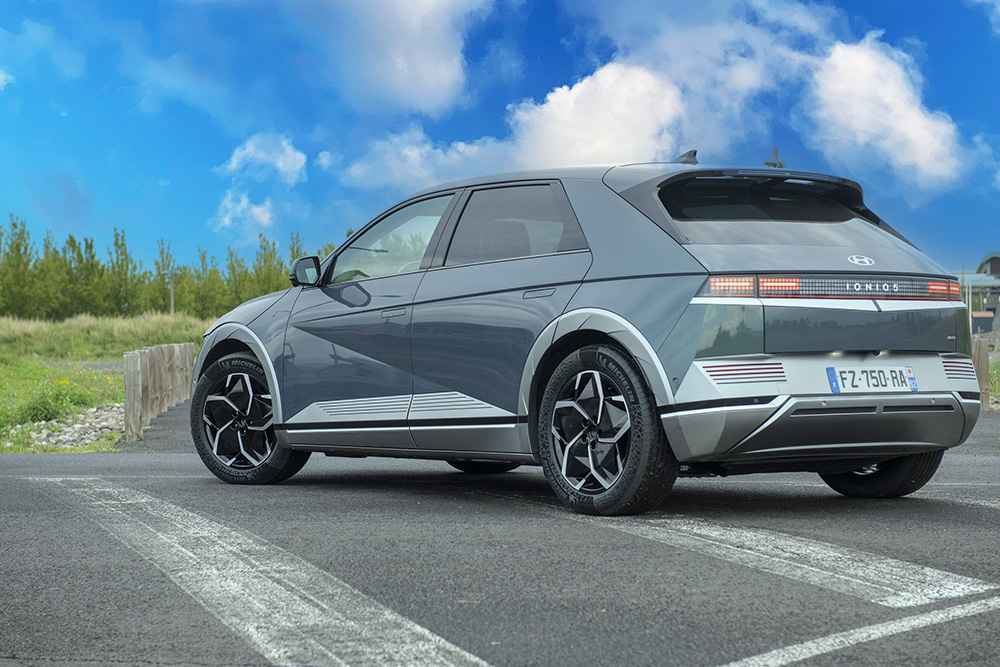
กลยุทธ์การใช้วัสดุที่ยั่งยืนของมิชลินมีความโดดเด่น ทั้งในด้านมาตรฐานระดับสูง, ขอบเขตการดำเนินงาน, มิติของการผสานพันธมิตร และวิธีดำเนินการที่ครอบคลุมตลอดวัฏจักรชีวิตผลิตภัณฑ์
การให้คำจำกัดความคำว่า “วัสดุที่ยั่งยืน” อย่างชัดเจน
ปัจจุบัน คำว่า “วัสดุที่ยั่งยืน” ยังไม่มีคำจำกัดความที่แน่ชัดเพียงหนึ่งเดียว การไม่มีคำจำกัดความที่ชัดเจนนี้ส่งผลเสียต่อความเข้าใจในกระบวนการต่าง ๆ ที่ดำเนินการอยู่ในภาคอุตสาหกรรมยางล้อ มิชลินเห็นว่า “วัสดุที่ยั่งยืน” คือวัสดุที่ผ่านการรีไซเคิลหรือวัสดุหมุนเวียน (Renewable) ตลอดช่วงชีวิตหนึ่งของมนุษย์ ด้วยเหตุนี้กลุ่มมิชลินจึงผลักดันให้เกิดฉันทามติของภาคอุตสาหกรรมยางล้อในการกำหนดคำจำกัดความที่ชัดเจนและเป็นที่ยอมรับร่วมกันสำหรับคำว่า “วัสดุที่ยั่งยืน”
วิสัยทัศน์กว้างไกลเกี่ยวกับ “วัสดุที่ยั่งยืน” ถูกนำมาปรับใช้กับผลิตภัณฑ์ทุกประเภทของกลุ่มมิชลิน
มิชลินตั้งเป้าที่จะดำเนินกลยุทธ์การใช้วัสดุที่ยั่งยืนกับผลิตภัณฑ์ทุกกลุ่มประเภท ไม่ใช่เพียงผลิตภัณฑ์ประเภทใดประเภทหนึ่งหรือบางกลุ่มผลิตภัณฑ์เท่านั้น การนำกลยุทธ์ดังกล่าวมาปรับใช้จำเป็นต้องอาศัยการปฏิรูปเชิงลึกด้านวิธีดำเนินการ เครื่องมือ และกระบวนการทางอุตสาหกรรม พูดกว้างๆ ก็คือ จำเป็นต้องมีการจัดตั้งภาคส่วนหรือห่วงโซ่คุณค่าใหม่ๆ ขึ้นเพื่อรับมือกับความท้าทายด้านการวิจัยและพัฒนา ตลอดจนด้านอุตสาหกรรม วิสัยทัศน์นี้ไม่เพียงมีความโดดเด่นในเชิงขอบเขตการดำเนินงานสำหรับภาคอุตสาหกรรมยางล้อ แต่ยังสะท้อนให้เห็นถึงความพร้อมของกลุ่มมิชลินที่จะปรับปรุงการออกแบบและการผลิตผลิตภัณฑ์ต่าง ๆ ขนานใหญ่เพื่อปกป้องพิทักษ์ผืนโลกเอาไว้
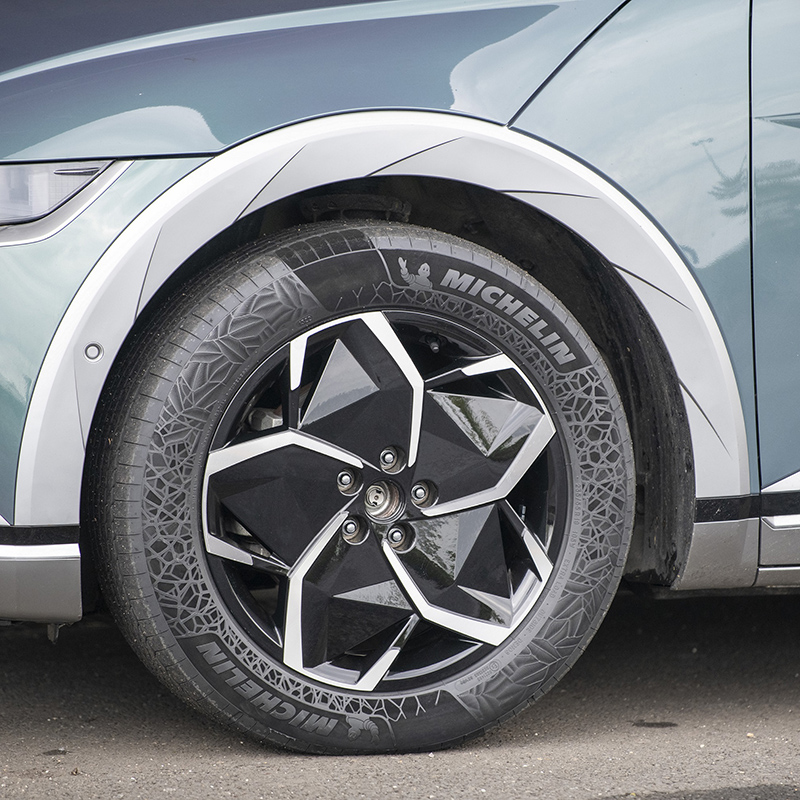
มิติของการผสานพันธมิตรอย่างที่ไม่เคยเกิดขึ้นมาก่อน เพื่อเร่งให้เกิดการวิจัยและพัฒนานวัตกรรม
กลุ่มมิชลินตระหนักดีว่าการพัฒนานวัตกรรมด้านวัสดุยั่งยืนจำเป็นต้องอาศัยทักษะใหม่ ๆ จึงได้ริเริ่มดำเนินโครงการผสานพันธมิตรกลุ่มเป้าหมาย เพื่อผลักดันให้การพัฒนาเทคโนโลยีล้ำหน้า…โดยเฉพาะอย่างยิ่งในด้านการแปรสภาพและการรีไซเคิล…ดำเนินไปได้อย่างรวดเร็ว พันธมิตรเหล่านี้ ได้แก่ ‘ไพโรเวฟ’ (Pyrowave) ในการผลิตสไตรีนจากการรีไซเคิล (r-styrene), ‘คาร์ไบโอส์’ (Carbios) ในการผลิตพลาสติก PET จากการรีไซเคิล (r-PET), ‘เอ็นไวโร’ (Enviro) ในการพัฒนาคาร์บอนแบล็กจากการรีไซเคิล (rCB) รวมทั้งกับ ‘ไอเอฟพี เอเนอจีส์ นูเวลล์ส’ (IFPEN) และ ‘แอคเซนส์’ (Axens) ภายใต้ความร่วมมือกับหน่วยงานเพื่อการเปลี่ยนแปลงทางนิเวศวิทยาของฝรั่งเศส (ADEME) ในการผลิตบิวทาไดอีนจากชีวมวล (Bio-Butadiene) นอกจากนี้ มิชลินยังร่วมดำเนินโครงการ ‘อองแพรงท์’ (Empreinte)* กับหน่วยงานเพื่อการเปลี่ยนแปลงทางนิเวศวิทยาของฝรั่งเศส (ADEME) และจัดตั้งโครงการด้านเศรษฐกิจหมุนเวียน (Circular Economy) ‘แบล็คไซเคิล’ (BlackCycle) และ ‘ไวท์ไซเคิล’ (WhiteCycle) ร่วมกับพันธมิตรสัญชาติยุโรปหลายราย โดยได้รับการสนับสนุนจากสหภาพยุโรป เพื่อแปรสภาพยางล้อที่สิ้นสุดอายุการใช้งานแล้วให้กลายเป็นวัตถุดิบคุณภาพสูงพิเศษสำหรับใช้ในการผลิตยางล้อใหม่
วิธีดำเนินการที่ครอบคลุมตลอดวัฏจักรชีวิตผลิตภัณฑ์
เพื่อนำตัวแปรต่างๆ ตลอดจนผลกระทบของยางล้อต่อสิ่งแวดล้อมมาพิจารณาอย่างรอบด้าน กลุ่มมิชลินได้ดำเนินการแบบ 360 องศาบนฐานการวิเคราะห์วัฏจักรชีวิตผลิตภัณฑ์ยางล้อ ตั้งแต่การเลือกวัตถุดิบไปจนถึงโซลูชั่นด้านการรีไซเคิลรูปแบบต่าง ๆ ภายใต้กรอบของการออกแบบเชิงนิเวศเศรษฐกิจ (Eco-Design) ที่เป็นมิตรต่อสิ่งแวดล้อม ความพยายามดังกล่าวจึงส่งผลเหนือกว่าเพียงพัฒนาและนำวัสดุที่ยั่งยืนมาใช้ในการผลิตยางล้อ โดยยังมุ่งเป้าที่จะนำไปปฏิบัติในทุกระดับการดำเนินงานแต่ละขั้นของวัฏจักรชีวิตผลิตภัณฑ์ยางล้อ (ได้แก่ การออกแบบ, การผลิต, การขนส่ง, การใช้งาน และการสิ้นสุดอายุผลิตภัณฑ์)
รางวัลที่มอบให้เพื่อยกย่องความมุ่งมั่นของมิชลินในการที่จะผลิตยางล้อจากวัสดุยั่งยืน 100% ภายในปี 2593 โดยมีเป้าหมายระยะกลาง (Interim Target) ที่จะใช้วัสดุยั่งยืนเพิ่มขึ้นในการผลิตยางล้ออีก 40% ภายในปี 2573
ยางมิชลินซึ่งผลิตจากวัสดุยั่งยืนในสัดส่วน 45% เปิดตัวเมื่อปี 2565 โดยมาพร้อมเทคโนโลยีล้ำหน้าซึ่งจะเป็นส่วนหนึ่งของยางมาตรฐานในปี 2568 การเปิดตัวยางรุ่นนี้ช่วยให้มิชลินสามารถรุกก้าวไปสู่การพัฒนาวัสดุยั่งยืนใหม่ ๆ ที่หลากหลายในปริมาณมาก ทั้งยังสะท้อนให้เห็นถึงศักยภาพด้านนวัตกรรมของมิชลิน ตลอดจนย่างก้าวที่ผ่านมาของกลุ่มมิชลินบนจุดยืนความมุ่งมั่นที่จะส่งเสริมการผลิตยางล้อในระดับโลกจากวัสดุรีไซเคิลและวัสดุหมุนเวียน 100% ภายในปี 2593 โดยมีเป้าหมายระยะกลางที่จะใช้วัสดุยั่งยืนเพิ่มขึ้นในการผลิตยางล้ออีก 40% ภายในปี 2573
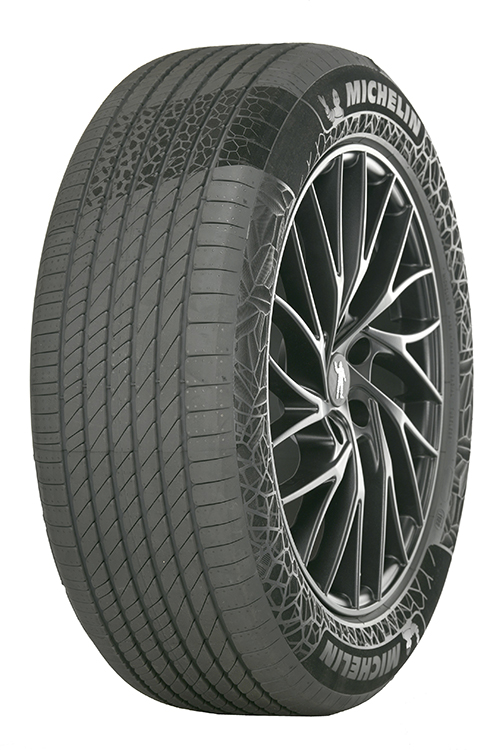
มร.เอริค ไวเนสส์ (Eric Vinesse) ผู้อำนวยการฝ่ายวิจัยและพัฒนา ซึ่งเป็นหนึ่งในคณะกรรมการบริหารกลุ่มมิชลิน เปิดเผยว่า “มิชลินมีความเชี่ยวชาญด้านวัสดุที่ล้ำสมัย ทั้งยังมีหน่วยงานวิจัยและพัฒนาซึ่งประกอบด้วยวิศวกร นักวิจัย นักเคมี และนักพัฒนาผลิตภัณฑ์ราว 6,000 คนทั่วโลก เป็นฐานผลักดันให้การดำเนินงานเป็นไปตามแผนงานและบรรลุเป้าหมายที่กำหนดไว้สูงมากได้ รางวัลที่ได้รับในครั้งนี้จึงถือเป็นรางวัลแห่งความสำเร็จและความภาคภูมิใจสำหรับทีมงานทุกทีม”
* โครงการ ‘อองแพรงท์’ (Empreinte) ได้รับการสนับสนุนทางการเงินจากรัฐบาลฝรั่งเศสในฐานะส่วนหนึ่งของโครงการลงทุนเพื่ออนาคต โดยปัจจุบันโครงการดังกล่าวเป็นหนึ่งในแผนการลงทุน France 2030 และดำเนินการโดยหน่วยงานเพื่อการเปลี่ยนแปลงทางนิเวศวิทยาของฝรั่งเศส (ADEME)
Michelin car tire containing 45% sustainable materials wins the AutomotiveINNOVATIONS Award 2023 in Frankfurt
- An award in the ‘Chassis, Car Body & Exterior’ category for Michelin road-approved car tires, containing 45% sustainable materials.
- A unique sustainable materials strategy which stands out for its high standards, scope, partnership dimension and overall vision.
- The award commends Michelin’s commitment to producing tires containing 100% sustainable materials by 2050, with an interim target of 40% by 2030.
Today in Frankfurt, Michelin received the AutomotiveINNOVATIONS Award 2023 in the ‘Chassis, Car Body & Exterior’ category for its road-approved car tires containing 45% sustainable materials. The award was presented by PricewaterhouseCoopers (PwC) and the Center of Automotive Management (CAM) which, for over a decade, has conducted studies with manufacturers and suppliers to identify major innovations in the automobile industry. For the occasion, a jury was composed of seasoned figures from the industry, the world of science and consulting, as well as the specialized media.
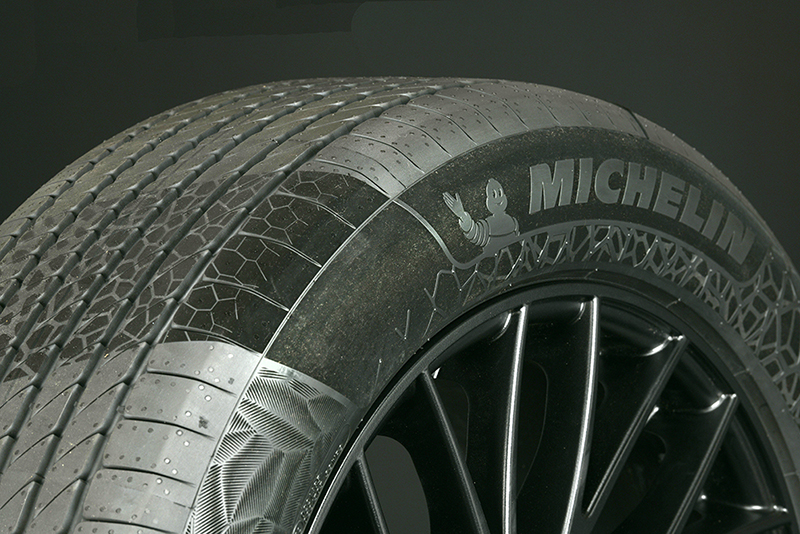
Michelin’s sustainable materials strategy is unique in terms of its high standards, scope, partnership dimension and comprehensive approach throughout the product’s life cycle.
- A stringent definition for sustainable materials
Today there is no single definition for sustainable materials. This lack of definition impairs the readability of the different processes currently implemented in the tire industry. Michelin considers sustainable materials to be those that are recycled or renewable over the scale of a human lifetime. This is why the Group is pushing for industry consensus on a common and stringent definition of what makes a material sustainable.
- A far-reaching sustainable materials vision, deployed across all of the Group’s products.
Michelin aims to roll-out its sustainable materials strategy across all of its products and not only for one product or several ranges. This deployment requires in-depth transformation of methods, tools and industrial processes. More broadly speaking, the research and development and industrial challenges will require the creation of new sectors and value chains. Unparalleled in the sector in terms of scope, this ambition illustrates the Group’s willingness to overhaul the design and manufacture of its products to help safeguard our planet.
- An unprecedented partnership dimension to accelerate research and innovation
Aware that the speed and nature of innovations in the field of sustainable materials call for new skills, the Group has embarked on a program of targeted partnerships, allowing it to step up the development of breakthrough technologies, in particular in the areas of transformation and recycling. Examples being Pyrowave (r-styrène), Carbios (r-PET), Enviro (rCB), IFPEN/Axens, with the participation of ADEME (bio-butadiene), the Empreinte* project conducted with ADEME and the BlackCycle and Whitecycle circular economy projects that Michelin undertakes alongside a number of European partners with support from the EU to transform end-of-life tires into very high-quality raw materials to be reincorporated into new tires.
- A comprehensive approach spanning the entire length of a product’s life cycle
In order to take into consideration all of the parameters and environmental impacts of tires, the Group has implemented a 360° approach, based on an analysis of the life cycle of tires; from the choice of raw materials right up to recycling solutions, within a general framework of eco-design. This willingness goes well beyond simply being capable of developing and incorporating sustainable materials in tires, and aims to act on all levers at each stage of the life cycle of tires (design, manufacture, transport, use and end-of-life).
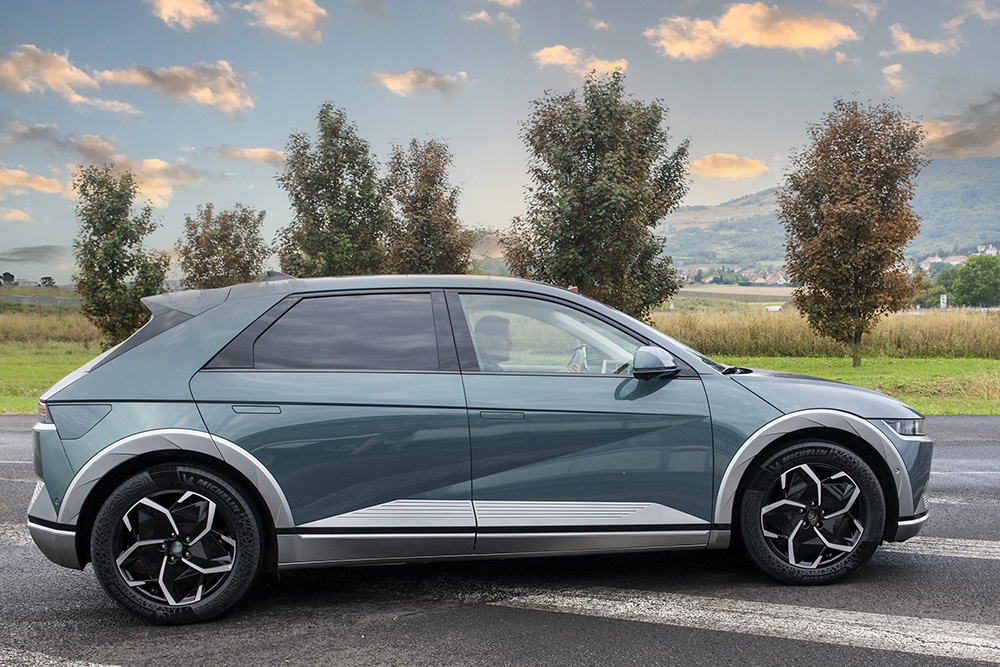
An award which commends Michelin’s commitment to producing tires containing 100% sustainable materials by 2050, with an interim target of 40% by 2030.
Unveiled in 2022, the 45% sustainable materials tire incorporates technologies which will feature in standard tires in 2025. It enables Michelin to take a further step towards the large-scale development of new sustainable materials. It illustrates Michelin’s innovation capacity, as well as the strides made by the Group to uphold its commitments to promote global production, obtained exclusively using renewable or recycled materials by 2050, with an interim target of 40% on average by 2030.
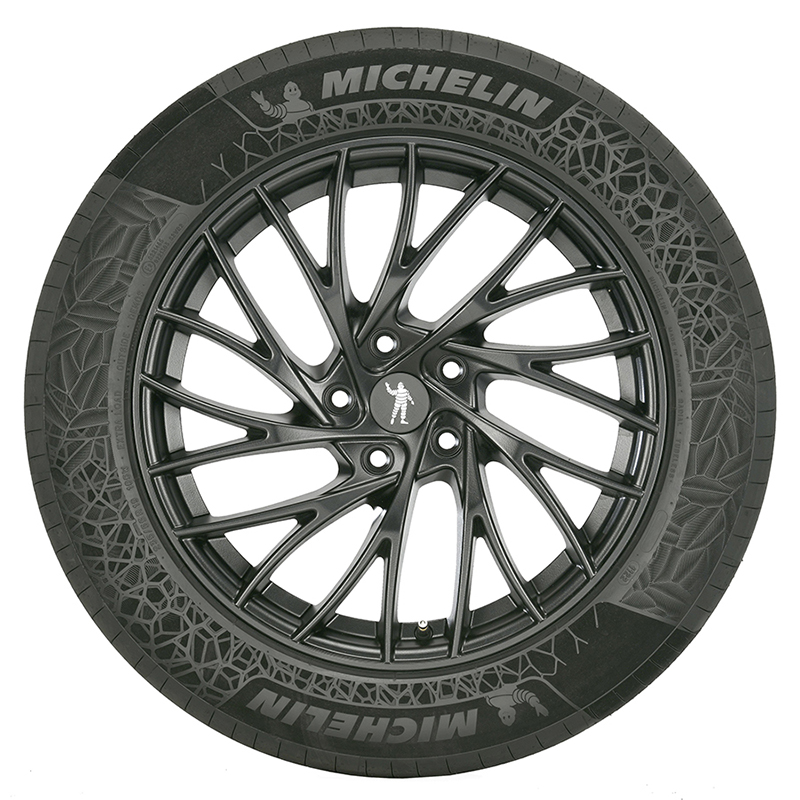
“To adhere to its extremely ambitious roadmap, Michelin is bolstered by its expertise in the field of cutting-edge materials, as well as by its entire R&D department, composed of 6,000 engineers, researchers, chemists and developers worldwide. It is to all of these teams that I dedicated this award”, declared Eric Vinesse, Director of Research and Development and Member of the Group Executive Committee.
Photos and videos are available at:
https://contentcenter.michelin.com:443/portal/shared-board/dc33304b-9083-4de6-998c-d5656b4d1070


